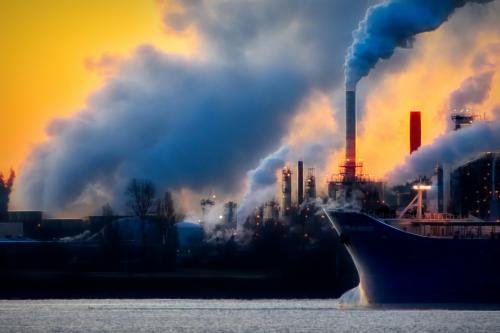Investors’ expectations around ESG factors have always been multifaceted. And with regulations and guidelines for ESG disclosure becoming more stringent there is evidence attitudes are changing around ESG that will affect how shareholders make their voting and investment decisions in the future.
Ahead of the upcoming ESG Integration Forum – Summer, taking place in New York on June 27, Governance Intelligence sister publication IR Magazine spoke to Marina Severinovsky, head of sustainability for the Americas at asset management firm Schroders, who will be discussing at the event how ESG expectations are changing.
You’ll be talking on a panel titled ‘Going backward or going mainstream? How ESG expectations are changing’ at the ESG Integration Forum. Which aspects of this important topic are you keen to explore?
For me, given the events of recent years, the most important thing is to re-establish that while the sustainability landscape may be going through a period of maturation in terms of how we assess and articulate these concepts, there is no change to the underlying fundamentals of why these issues are a focus for investors.
Challenges such as climate change, nature loss and social inequality are increasingly defining the global economic outlook, business agenda and investment landscape. For investors like us, these are not political or ideological questions – they are about investment fundamentals. Our focus is on ensuring the portfolios we manage are well placed to navigate the risks and opportunities created by social and environmental challenges so we can deliver the investment outcomes our clients expect.
The current trajectory for climate change, nature loss and social inequality threatens to erode significant value in our clients’ portfolios. Conversely, supported by an enabling policy environment and corporate commitment, we believe we are well placed to channel capital to help solve these pressing problems, working in partnership with government and our investee companies to catalyze investment for the sustainable transition.
Investors act as fiduciaries responsible for the safekeeping of their clients’ assets. In most countries, this responsibility is a legal duty. We see no contradiction between this duty and consideration of financially material environmental and social change factors – both risks to and opportunities for value creation and preservation. Information and disclosure are critical to enabling investors to assess the risk and opportunity arising from emerging social and environmental pressures and to direct capital effectively.
We feel this requires mandated and standardized levels of disclosure, starting with the large companies that are investors’ focus and major players in the real economy. We also feel that over time, disclosure must be followed by pragmatic transition planning and action, aimed at ensuring the durability of the business and of shareholder returns. Schroders seeks to be transparent in our expectations of investee companies, and we use an engagement blueprint to summarize our areas of focus and the frameworks we use over short, medium and long-term horizons to engage constructively on these issues.
Can you tell us about your background in the ESG field and some of the things you’re looking forward to hearing about at the event?
I did not start my career in sustainability. I was a consultant and an investment banker before I found my way to asset management around 15 years ago. I have worked on investment desks that managed money in commodities, emerging market bonds and global/international quant equities, in addition to being a market/macro strategist.
What all of this means is that I always approach sustainability with an ‘investment case and markets rationale’ mindset. I am thinking about market trends and themes, about risk and opportunity and about preserving and enhancing shareholder value in a rapidly changing world, rather than about taking a stand or campaigning. So what I would most like to hear from corporate leaders at the event is how they are working with investors like us, and what else they feel we can be doing to establish and build constructive engagement with them to support their efforts.
What are some of the biggest challenges you have faced in your profession so far and what do you feel is the next big challenge on the horizon?
Having experienced the global financial crisis as a newly minted MBA and junior investment banker, it feels as though I went through my fire quite early on. That said, taking on a sustainability role at the very start of 2022, just in time to watch energy prices spike due to the Russia-Ukraine war, rates and inflation rise and the anti-ESG backlash gain political momentum was certainly interesting as well!
I think the challenge we have for the future, which we can certainly meet, is to reframe sustainability investing in a way that is practical, pragmatic, supportive of transition and respectful and empathetic to the perspectives and needs of various stakeholders. They are affected in real ways by both the global challenges themselves and efforts to solve them – such as the need to effect a just path for people and communities reliant on those parts of the global economy that will decrease as a result of transition. This also involves rebuilding trust around greenwashing issues and ensuring more data transparency, consistency and comparability for consumers, investors and other key stakeholders.
If you were to give your audience at the ESG Integration Forum one piece of advice, what would it be?
Look past some of the current noise, especially in an election year, and think more in terms of anchoring to long-term and durable economic and market trends. At Schroders, we use a ‘3D’ framework of decarbonization, deglobalization and demographics to inform our investment approaches, because we know these three trends will be drivers of change for companies for many years to come.
The implications of climate transition, supply-chain realignment and labor scarcity are all inextricably linked to sustainability and how companies respond to these challenges to future-proof their businesses, through lenses like energy evolution, human capital management, and so on. I believe it is important that we, as both a business and an investor, stay focused on this long-term ‘why’ of sustainability integration, for the benefit of our clients.








